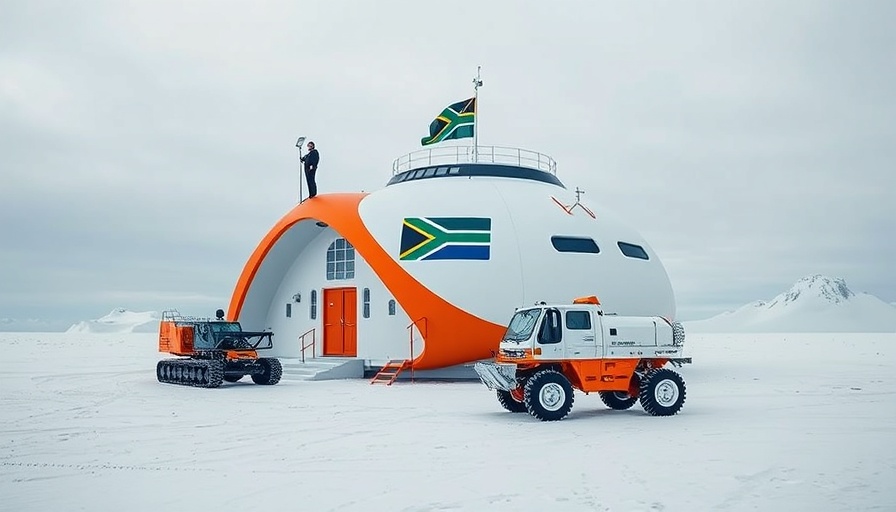
Exploring the Crisis at SA's Antarctic Research Base
Recently, significant tensions have unfolded at South Africa's SANAE IV Antarctic Research Base, located in Queen Maud Land. As a crucial hub for scientific exploration, the base is currently facing alarming reports of violence and psychological distress among its overwintering team members. As noted in reports, the severe isolation coupled with a lack of immediate communication options have raised urgent concerns regarding the mental health of the scientists stationed there.
Amplified Isolation: A Recipe for Distress
The overwintering team at SANAE IV is tasked with conducting vital research, but they are also bound by the harsh realities of this extreme environment. With winter setting in, cutting them off from the outside world for up to 10 months, any form of conflict can escalate dangerously. An email from one team member to the South African government highlighted fears of an allegedly violent colleague, citing an atmosphere of intimidation and distress that threatens their safety. This raises critical questions about the support systems in place for researchers in such isolated and stressful settings.
The Importance of Psychological Evaluations and Preparedness
Historically, the South African National Antarctic Programme's protocol involves thorough psychometric evaluations intended to identify candidates capable of handling the pressures of Antarctic overwintering. With reports now suggesting a need for re-evaluation of the mental health of these scientists, it begs the question: what measures are being taken to ensure such situations are preemptively addressed?
The Role of Authorities in Crisis Management
In light of the escalating situation, officials from the Department of Forestry, Fisheries and the Environment (DFFE) have expedited measures to support the team, implementing coping mechanisms and conflict resolution strategies. This official intervention marks a critical step in ensuring the mental well-being of all personnel involved. Notably, Peter Mbelengwa, the DFFE communications chief, stated that the department is handling the situation 'with the utmost urgency,' promising a thorough investigation into the claims made by the affected team members.
The Future of Scientific Research in Extreme Conditions
As the situation unfolds at the SANAE IV base, it shines a spotlight on the broader implications for scientific endeavors in hostile environments. The balance between conducting essential research and ensuring the physical and psychological safety of personnel is precarious. Indeed, the ongoing crisis at SANAE IV serves as a warning: stringent protocols and support systems must evolve alongside the challenges presented by climate change and shifting scientific demands.
Public Support and International Attention
The plight of the researchers has garnered public interest, raising awareness about their critical roles in the context of global climate research. As these scientists navigate their perilous situation, the world watches closely, reflecting a growing concern for mental health within high-stakes careers. The upcoming interventions promised by local authorities, including comprehensive counseling and support initiatives, will need to be effectively communicated to restore a sense of safety and trust among the team members.
Conclusion: Beyond the Antarctic
This incident at SANAE IV not only highlights the urgent need for robust psychological and operational measures in isolated research settings, but it also prompts further discussions about the protections necessary for scientists worldwide. As South Africa's public grapples with broader issues related to governance and service delivery within the context of national elections, the fate of these researchers brings to light the pressing need for comprehensive governmental support in ensuring their safety and the integrity of scientific pursuit. The trajectory of the current political landscape will likely influence not only policy discussions but also the strategies implemented for engaging with future challenges in such critical research environments.
Call to Action: As we observe the developments at SANAE IV, it is imperative for the public and stakeholders to advocate for greater awareness and psychological provisions for scientists working in isolated locations. Their contribution is invaluable, and ensuring their safety should be a priority.
 Add Row
Add Row  Add
Add 




Write A Comment